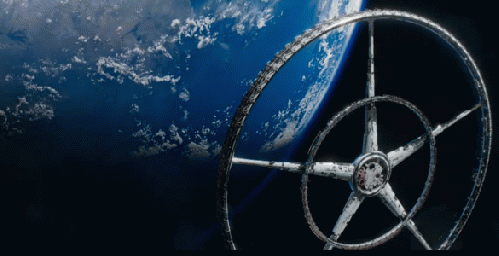I watched Elysium last night. It was successful. It made my blood boil and my teeth clench.
The movie delivers a powerful message. We are already living in a hellish world where the elite and powerful are living lives of luxury off the backs, off the deaths of the 99.9 percent.
It's no wonder that this movie has been panned by so many mainstream critics.
To be honest, this is not a perfect movie. It is made to pander to the tastes of today's movie-goers, with far more violence than necessary to support the story.
But this is a movie worth seeing.
Without spoiling the plot, I can tell you that this movie shows the banal evil of the ruling, moneyed class, the brutal treatment of workers, the dehumanization and, beyond militarization, robotization of the police-- police programmed to be cruel and inhuman. The defense secretary, played by Jodie Foster, is a brilliant but lethal psychopath. The head of a military manufacturer is a despicable sociopath who sees worker fatalities as annoying production line slow downs. But they hire an earthbound psychopath to do their dirty work.
In the movie Elysium, the people on earth are a down-trodden, hopeless lot. The people of Elysium live on an orbiting habitat that supports 250,000 people, with houses selling for $250 million and up.
As you've probably concluded , the movie Elysium throws some futuristic trappings on the actual situation that exists in the world right now. Watching the contrast between the lives of the elite and the rest of the people on earth is what made my blood boil and my teeth gnash.
Spoiler alert. Reading beyond this point will give away some of the plot developments.
Matt Damon plays the hero of this story-- a reluctant hero who accepts "the call" because he has no other choice. He has been exposed to radiation that will kill him in five days. Because of his dire situation, he seeks a very high risk solution with very low odds for success. That solution involves violating all kinds of laws of Elysium. As he embarks on this journey we learn that the elites who live on Elysium, a massive space station with green verdant lawns, waterways and clean air, control the laws and life on the surface of the planet.
I've long believed that it will take heroes and heroines who are literally dying, people who know they have a short time to live, to engage in revolutionary acts of courage, standing up to the machine, fighting for justice and humanity. That's what Matt Damon's character does in this movie.
There are many wisdom sources that say that it's not the destination, it's the journey. That's true for this movie. The end is not really realistic or satisfying. It does show that the people take the tools for healing the sick back from the billionaires on Elysium. It does show that the people of earth are all made whole, treated equally. But as most Hollywood stories go, this one also portrays the solution as one resolved by a lone hero. Showing a courageous soul who is willing to sacrifice his life is a good example. But Howard Zinn and Woodie Guthrie have both said that it will take millions of small acts to save the world. Here's what Zinn said in an interview I did with him:
"How could you predict that four students,in 1960, would do is sit in Woolworth's in Greensboro, North Carolina, and this would spark dozens and dozens of sit-ins and this would lead to freedom rides? In other words, there's no way of predicting how a movement develops. All you can do really - you do your part, you do whatever you can, you organize with other people, you try to get some kind of change, and if enough people do enough things, even if they're little things, they will add up. Because that's what happens in movements: just millions of people doing small things which they cannot predict in it's results.
And Woodiy Guthrie said, "A lot of little things, millions of little things is what will save this world."
Last year, I interviewed, for my Bottom Up Radio Show, Chris Vogler, a movie consultant who wrote THE book, The Writer's Journey, on incorporating Joseph Campbell's concept of the Hero's Journey into movies. I invited him on my radio show to discuss whether it was possible to make a movie in which there is an Occupy Wall Street, horizontal version of the hero's journey, in which there are many people who come together, from the bottom up, to save the day. He jumped at the idea and opportunity to discuss it and came up with the term "collective hero." Here's an excerpt from the interview:
Chris: This reorientation you're talking about of getting it off of this hierarchical, leave everything to the secret elite team at the top, which is the idea of "The Avengers" and rewriting this or redefining this is. No, this has to be from the people. The people in "The Avengers" movie are like sheep. There's one woman who's given a couple of lines and she's supposed to represent all the people but she's just like a big sheep looking up at, "Oh, the heroes they're saving us. Oh, that Iron Man. He's so cool," or whatever it is. It's a very weak attempt to acknowledge the power of the people. So, that's something that I think we could grow more of this kind of consciousness in our story.
(Note: You can view every article as one long page if you sign up as an Advocate Member, or higher).






